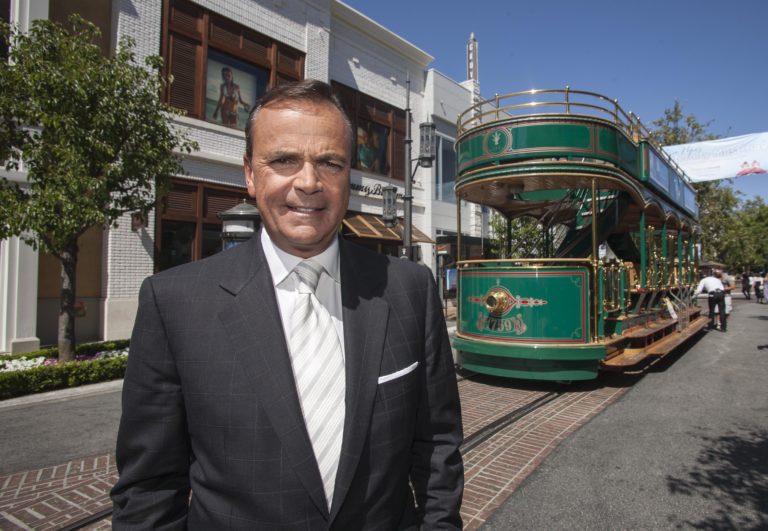
But this year, that isn’t necessarily a good thing.
The historically strong real estate market in Los Angeles has faltered during the Covid-19 pandemic.
Although L.A.’s single-family home prices in 2020 were up 4.4% through May compared to the same period the previous year, according to research from CoreLogic, that upward trend might not continue. Nationally, home prices are expected to fall 6.6% by May 2021.
While L.A.’s residential sector may not be hit as hard as the national market because of the city’s tight housing supply, commercial real estate has seen mixed results during the pandemic.
“Generally, logistics and life science properties are basically at pre-Covid levels and sometimes even stronger, especially as ecommerce has grown by more than 60% this year,” said Kevin Shannon, co-head of capital markets at Newmark Knight Frank. “Data centers are right behind them. Multifamily, depending on the market, is next.”
If there’s a standout category for L.A., though, it’s industrial real estate.
“The industrial data points are clear,” Shannon said. “In Southern California, the markets are doing great. Both domestic and offshore capital recognize this, and a lot of them have industrial at the top of their shopping list.”
Multifamily strength
Many members of the Wealthiest list have substantial multifamily real estate holdings.
Former Los Angeles Clippers owner Donald Sterling holds more than 160 apartment buildings in L.A. And Geoffrey Palmer has built more than 15,000 units — many near the 110 freeway in downtown — and has nearly 4,000 units under development or under construction.
John Shea’s Shea Properties owns and operates nearly 9,000 apartment units and 4.2 million square feet of office, industrial, and retail space in California, Colorado and Washington.
The office market, meanwhile, is more of an unknown according to Shannon because “investment capital wants to know what rents are post-Covid.”
As businesses expand work-from-home scenarios and de-densify workspace, investors anticipate changes in the market.
Stabilized office product is faring much better than value-add properties, Shannon added, and grocery store retail properties are in better shape than the rest of the retail market.
Core office portfolios are off 5% to 10% from where they were pre-Covid, and value-add assets are off 15% to 20%, Shannon said.
On the far end of the spectrum is retail and hospitality. Wealthiest list mainstay Rick Caruso, for example, owns a handful of high-end retail properties, including the Grove, and a resort in California.
Rent collections on retail properties are difficult, though, and many hotels are either closed or operating at low occupancy.
“The hotel market, along with the retail market, provides us with one clear indicator of private-sector economic health. By this measure, a promising recovery has begun to plateau due to the resurgence of the virus in parts of the U.S.,” CBRE Group Inc.’s Richard Barkham said in a statement.
“Among commercial real estate asset types, hotels react the fastest to economic changes because they can fill up or empty out overnight. Hotels, like other industries, will need vaccines to emerge in order for conditions to begin to return to normal,” he added. “In addition, most hotels specialize in serving business travelers and groups. That business won’t return en masse until job growth resumes, business and consumer confidence perks up, and infection rates are on a sustained decline.”
NKF’s second-quarter capital market reports show hotel REITs are off by 48% from where they were last year, retail REITs are off 36%, and office REITs are off 24%.
Shannon said, though, that “actual trades in the market are not off by nearly as much,” and some retail is doing well.
“One of the winners in Covid is the grocery store. Food- and drug-anchored deals are still doing well. Everyone has to eat,” Shannon said.
Short-term hit?
For property owners that can weather the storm, Covid may be a short-term hiccup to real estate portfolios that will hold their value in the long term, and some great assets are still trading.
“Most people aren’t selling in this environment and know it’s not a good time to sell,” Shannon said. “The product which is going to trade now is core product. Those types of deals are less sensitive to the short-term fluctuations.”
For the rest of the year, Shannon expects things to be slow in L.A., with the exception of the industrial category.
One of the biggest office sales announced this year was the U.S. Bank Tower. OUE Ltd., based in Singapore, plans to sell the property for $430 million to New York-based Silverstein Properties Inc., far below the $700 million experts predicted it could fetch last year. The deal has not yet closed.
Shannon called the U.S. Bank Tower deal a distressed sale. Next year, he expects the office category to see more sales velocity.
